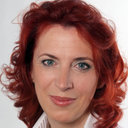Department of Medical Genetics
Clinical Center – University of Pécs
Szigeti 12
H-7624 PECS
HUNGARY
Lead

Dr Kinga HADZSIEV
Telephone: +36 72 536 427
Fax: +36 72 536 032
Scope
Our area of expertise as ITHACA European Reference Network (ERN) centre covers all syndromes exhibiting developmental anomalies and/or intellectual disability (ID). About 1/40 newborn has a congenital malformation (261/10000 fetuses and newborn following EuroCAt reports), and 1/40 has ID. Therefore, 3 to 5 % of all human births show or will develop a developmental anomaly, among which at least 25-50% are of genetic or genomic origin. This huge population represents in reality the juxtaposition of a very large number of individually rare disorders showing an extreme diversity of causes and phenotypes. The jurisdiction and scope of expertise of this ITHACA Centre includes:
- over 5500 dysmorphic and multiple congenital anomalie (MCA) syndromes (listed in the London Dysmorphology Database), among which over 3000 monogenic diseases, all chromosome abnormalities (most of them only detectable through array technologies), multifactorial, sporadic dysmorphological anomalies and embryofetopathies of environmental origin
- >1500 monogenic and hundreds chromosomal forms of ID with or without associated autism spectrum disorder (ASD).
Service to patients
The scope of our patient care activities includes the recognition of both the discrepancies leading to abnormalities of the genome and the developing pathological processes, as well as the early identification of individuals and families at risk, and upon the identification of the genetic defect the preventive care of the affected family members, prevention of mental and physical retardation of those born with genetic disorders in addition to the rehabilitation of such patients.
Organisation of the Center
The University of Pécs was founded by King Louis the Great in 1367, as the first university in Hungary. Today, this University is one of the largest institutions of higher education in Hungary with the widest spectrum of teaching and research activities. The Clinical Center of the University is a regional center for a population around1 million inhabitants, but – as one of the four Rare Disease Expert Center in Hungary since the ministerial appointment in June 2015 – for several diseases, including groups of rare and undiagnosed diseases its coverage is nationwide. The departments of the Clinical Center are traditionally involved in the diagnosis, prenatal diagnosis, follow up, rehabilitation and treatment (if available) of the developmental anomalies and/or intellectual disability. The individual departments form a Rare Disease Center, which is a local umbrella network, with strong national and international affiliations (affiliate partner in Neuromics, member of UDNI – Undiagnosed Disease Network International). The coordinator of the Rare Disease Center is the Department of Medical Genetics, which is a diagnostic, treatment and research facility specialized in hereditary and acquired disorders of the human genome.
The Health Care Provider (HCP) is the Clinical Center of the University of Pécs with 21 departments and 8 institutions, these count over 1200 adult and 180 pediatric beds and around 1.7 million outpatient care. There are 1700 births/year on the Department of Obstetrics and Gynecology. With the multidisciplinary and the wide range of expertise provide by the Clinical Center the HCP is involved in all field of the rare diseases management. Regrading to scope the ERN-ITHACA the following departments have outstanding role:
- 2 departments of medical genetics offering genetic counselling for children and adults and pregnant women with prenatal diagnostic unit.
- 1 department of child neurology with experience in the management of different childhood epilepsy syndromes.
- 1 department of child psychiatry offering care for ASD and ID patients (including inpatient unit)
- 1 department of General Pediatric: endocrinology, cardiology, nephrology, gastroenterology, oncology and with surgical unit with specialized skills in orofacial and urogenital malformations and newborn surgery. 1 NICU with 20 beds.
Different specialized departments in adult care, including neurology, and the interventional services include neurosurgery as well and a brand new rehabilitation center with a wide spectrum of available treatment options.
Full technical support, including classic medical laboratories, medical imaging (T3 MRI), and electrophysiology, genetic and genomic investigations including array, NGS and mass spect facility.
